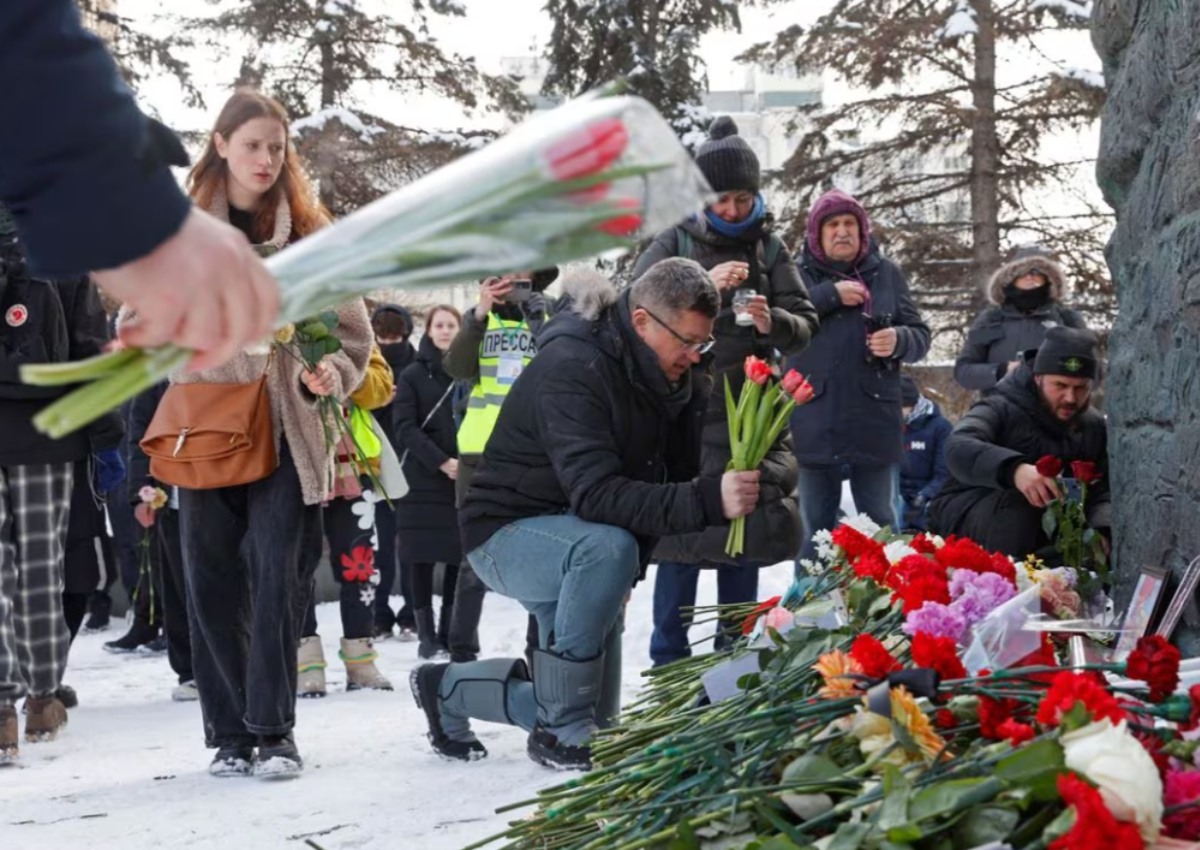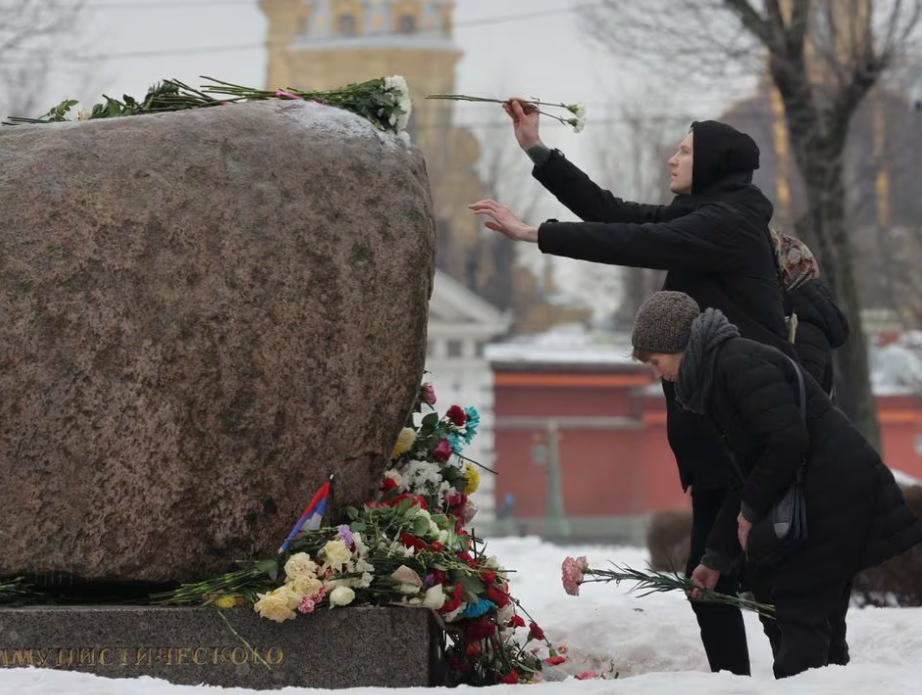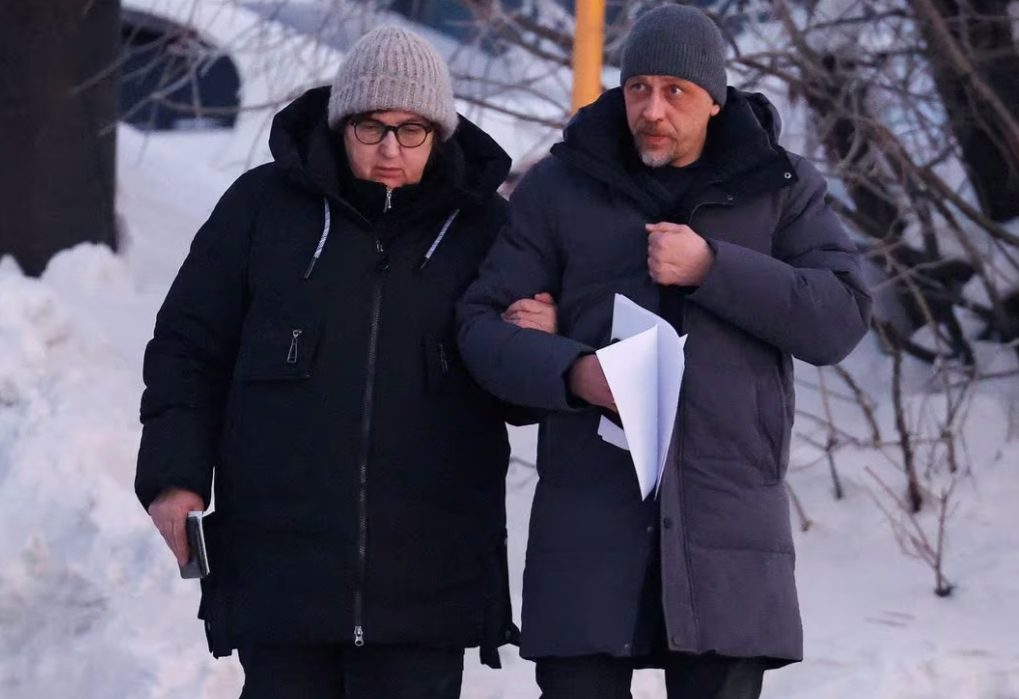Navalny's death leaves despair and apathy in Moscow


MOSCOW — The hundreds of flowers and candles laid in Moscow on Friday (Feb 16) to honour the memory of Alexei Navalny, Russia's most prominent opposition leader, were taken away overnight in black bags.
Russia's prison service said that Navalny, 47, fell unconscious and died on Friday after a walk at the "Polar Wolf" Arctic penal colony. Navalny's spokeswoman Kira Yarmysh on Saturday confirmed his death, citing an official notice given to his mother, Lydumila.
In central Moscow, several dozen roses and carnations remained in the softening snow on Saturday at the monument to the victims of Soviet repression, which sits in the shadow of the former KGB headquarters on Lubyanka Square.

Vladimir Nikitin, 36, was alone laying a carnation at the Solovetsky Stone, which hails from the islands with the same name in the White Sea where one of the first "Gulag" forced labour camps was founded in 1923 by the Bolsheviks.
Policemen looked on.
When asked for an interview by Reuters, Nikitin asked to speak in the underpass which threads beneath Lubyanka Square, citing the fear of detention.
"Navalny's death is terrible: hopes have been smashed," Nikitin said.
"Navalny was a very serious man, a brave man and now he is no longer with us. He spoke the truth - and that was very dangerous because some people didn't like the truth."

At the "Wall of Sorrow" memorial on the avenue named after Soviet physicist and dissident Andrei Sakharov, some Russians laid flowers beside pictures of Navalny. One message read: "We will not forget, nor shall we forgive."
"I came because I have grief," said Arkady, who declined to give his second name. "He was a man who I respected. I had hopes that he was someone who could do something in the future."
The West, including US President Joe Biden, blamed President Vladimir Putin for the death. Western leaders did not cite evidence.
Kremlin spokesman Dmitry Peskov said the reaction of Western leaders to the death was unacceptable and "absolutely rabid".
Russian authorities viewed Navalny and his supporters as extremists with links to the CIA intelligence agency who are seeking to destabilise Russia. They have outlawed his movement, forcing many of his followers to flee abroad.
The death of Navalny, a former lawyer, robs the disparate Russian opposition of its most charismatic and courageous leader as Putin prepares for an election that will keep the former KGB spy in power until at least 2030.
The OVD-Info protest-monitoring group said more than 110 people had been arrested across Russia at meetings and memorials to Navalny, including 64 in Russia's former imperial capital, St Petersburg.
Navalny rose to prominence more than a decade ago by documenting and poking fun at what he said was the vast corruption and opulence of the "crooks and thieves" running Putin's Russia.
At the time of his death he was serving prison sentences totalling more than 30 years on a host of charges of extremism and fraud, which he denied and said were politically motivated.

His mother was travelling to the IK-3 penal colony in the Yamal-Nenets region, about 1,900 km northeast of Moscow, where he died, Russian media reported.
Navalny's supporters — including in the West — cast him as a Russian version of South Africa's Nelson Mandela, who would one day walk free to lead the country.
His wife, Yulia, told the Munich Security Conference that Putin bore responsibility for her husband's death and that the world should come together to defeat the "horrific regime" in Moscow and reclaim Russia.
Some Russians, though, dismissed such a view as a classic case of wishful thinking, and pointed to an opinion poll showing that most Russians disapproved of him and that Putin was vastly more popular.
"Navalny's death is very beneficial to Putin's opponents," said Sergei Markov, a former Kremlin adviser.
"They will use it to undermine the legitimacy of the presidential election in Russia, use it to not recognise Putin as the legitimate president. They are trying to present Putin not as the president of a hostile country, but as a criminal with whom no one should have to deal."

News of Navalny's death came just hours before Ukraine withdrew from the south of the city of Avdiivka, paving the way for Russia's biggest advance in the country since May 2023.
At "Patriki", or Patriarch's Ponds, the centre of Moscow nightlife, many young Russians revelled away Friday night just hours after news of Navalny's death. There was no sign of sadness.
"It is sad of course when anybody dies," Olga Kazakova, a Russian, told Reuters in central Moscow on Saturday.
"But you in the West paint him as someone he was not. The West is not our friend — you are fighting against us in Ukraine."
On the bridge beside the Kremlin where opposition leader Boris Nemtsov was shot dead on Feb 27, 2015, flowers were also removed overnight. A makeshift vase of white and red carnations remained with a small printed piece of paper.
"Boris Nemtsov was shot in the back and murdered here," the note said.
Policemen looked on as children made their way through the snow piled up in the shadow of Saint Basil's Cathedral.
ALSO READ: Kremlin critic Alexei Navalny says he has been handed new criminal charges